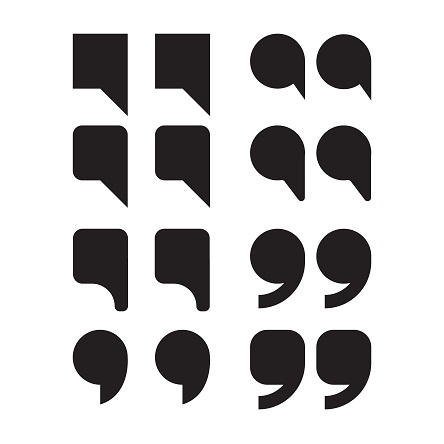How to Choose and Use Quotations

Incorporating quotations effectively into your writing can significantly enhance the strength of your argument. Selecting the appropriate quotes and seamlessly integrating them into your narrative is a crucial aspect of scholarly writing.
By understanding the nuances of quotation selection and integration, you can create a more compelling and cohesive piece of work that resonates with your readers.
Let's delve into this important component of academic writing together.
Key Takeaways
-
Choose quotes from credible sources to add authority to your argument.
-
Introduce quotes with a lead-in to provide context and relevance.
-
Weave quotes seamlessly into your writing for flow and coherence.
-
Analyze quotes to explain their significance and relevance to your topic.
-
Ensure proper citation of quotes to maintain academic integrity.
Selecting Appropriate Quotes
When incorporating quotes into your writing, it's essential to ensure they're original, relevant to your argument, and sourced from credible authorities. Use quotation marks for direct citations and confirm that the wording aligns precisely with your thesis.
Including quotes from external sources can enrich your perspective and strengthen your argument. Validate the authenticity of the quote by selecting those from firsthand witnesses, as this can significantly boost the credibility of your writing. We recommend as great source of online quotes Quotes.CX.
Prioritize quotes from subject matter experts to enhance the robustness of your argument. By judiciously choosing quotes that directly underpin your thesis, you can effectively reinforce your key points and elevate the overall quality of your work.
Integrating Quotations Smoothly
To effectively incorporate quotations into your writing, it's important to seamlessly weave them into your sentences to maintain the flow of your argument. Begin by introducing the full claim or idea before inserting a quotation to establish its relevance to your argument.
Utilize lead-in verbs that mirror the author's tone or attitude to offer context for the quotation within your text. It's advisable not to conclude paragraphs with quotations to facilitate a smooth transition back to your analysis.
Select quotations that directly relate to your topic and arguments to strengthen the depth of your discussion. By integrating quotations thoughtfully, you can enhance your writing with external voices while ensuring a cohesive and coherent flow of ideas.
Applying Proper Quotation Mechanics
Generating text that offers factual information and analysis on the topic is essential.
It's important to avoid using overly enthusiastic language or exaggerated expressions.
The focus should be on presenting information in a clear, concise, and neutral manner.
It's crucial to provide well-supported arguments and to refrain from including speculative or overly imaginative content.
Understanding Different Quote Types
Understanding Different Quote Types involves distinguishing between direct quotations that feature the original words and indirect quotations that provide a summary.
In academic writing, direct quotations are essential for accurately capturing the exact language of the source material, especially when citing impactful language or expert opinions.
On the contrary, indirect quotations are useful for succinctly conveying essential information or ideas from the original text.
It's imperative to remember that proper citations are necessary when using any type of quote. Citations not only acknowledge the original author but also enhance the credibility of your research.
Adhere to the prescribed citation format for both direct and indirect quotations to maintain academic integrity.
Explaining and Analyzing Quotations
Effectively analyzing quotations contributes to the depth and persuasiveness of your arguments. When explaining and analyzing quotations, it's important to consider the context and extract the intended meaning behind the words within the quotation.
By restating the significance of the quotation in your own words, you clarify its relevance to your argument. Integrate the quotation smoothly within your writing, ensuring it isn't left without explanation. The Writing Center underlines the significance of correctly introducing and reproducing the quotation while also offering a clear analysis of its implications.
Demonstrate to readers how the quoted passage supports your argument and why it's crucial in reinforcing your point of view.
Conclusion
In conclusion, remember to carefully select quotations from credible sources to strengthen your argument. Integrate them smoothly into your writing using lead-in verbs, and ensure proper citation mechanics are followed.
By analyzing and explaining the significance of each quote, you can effectively support your argument and showcase your understanding of the material. Keep these tips in mind when choosing and using quotations to elevate the quality of your writing.